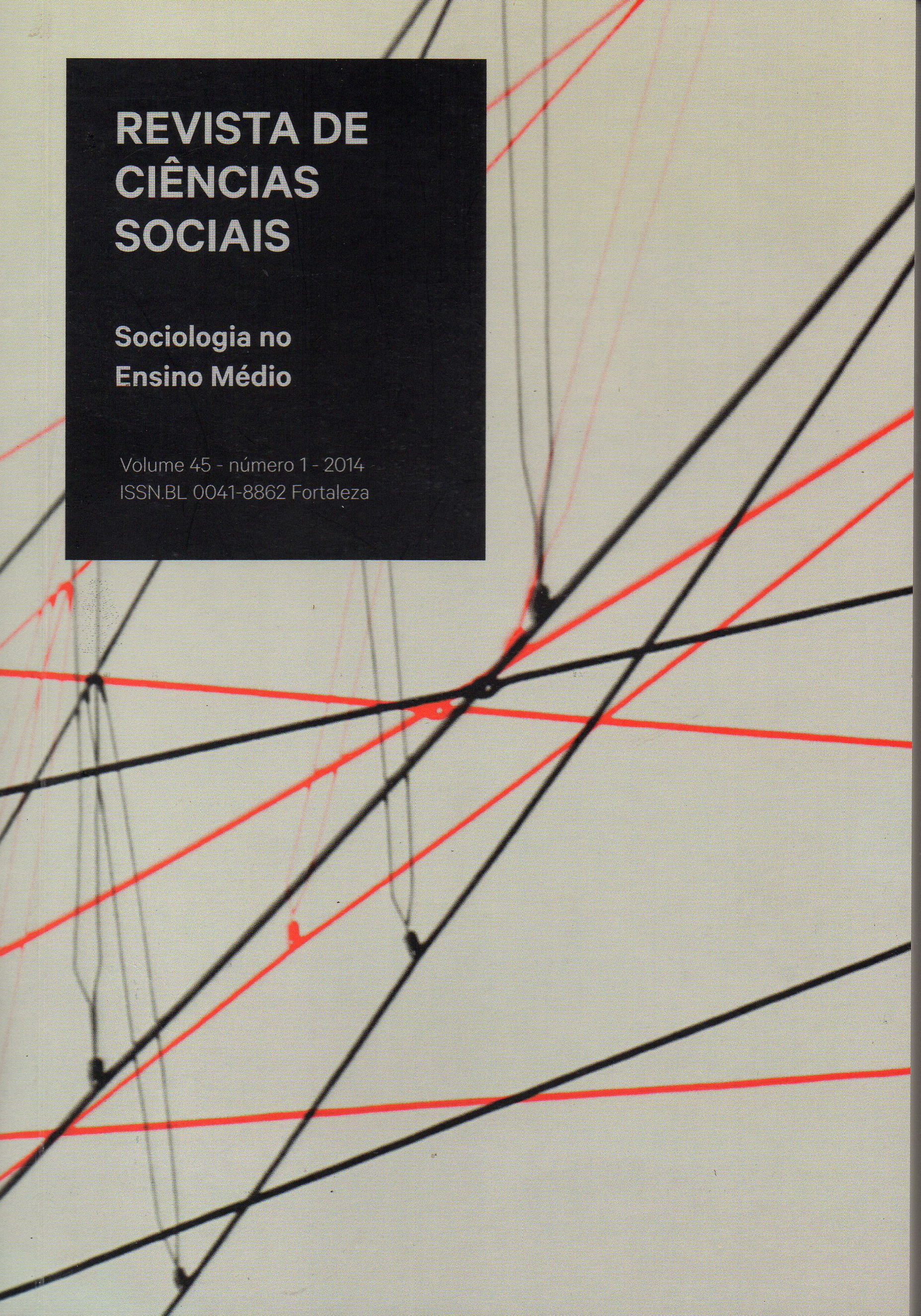Civilizational Ethics and Sociological Theory: a conceptual revision of Durkheim
Keywords:
Durkheim, Ethics, Nature, SocietyAbstract
In the present article, I intend to revise some of the concepts used by Durkheim regarding an ethical and moral postulate that permeates different stages of his work: this postulate refers to the moral value of civilization, expressed on the dichotomy between nature and society. From this starting point, I revise the sociological problem of anomie and its distinction to that of egoism. Furthermore, it will be demonstrated the way by which natural determinations and the simbolic figures of the irracional appear in his historical-sociological comprehension. That will be done through the analysis of three categories of historical forces: (1) natural-historical forces of individuation, (2) historical forces of interaction, and (3) the rational action of the State as an autonomous and privileged social subject. I conclude demonstrating how, by the prism of the ethical-moral postulate of prevalence of society above nature, democracy is perceived by him as the historical purpose of civilization.
Downloads
References
BELLAH, Robert N. (1959). Durkheim and history. American Sociological Review, volume 24, nº 4, p. 447-461.
BESNARD, Phillipe (1993). Anomie and fatalism in Durkheim’s Theory of Regulation. In: Turner, S. (ed.), Émile Durkheim: sociologist and moralist. New York: Routledge, 1993.
COLLINS, Randall (1990). Durkheimian tradition in sociology. In: Alexander, Jeffrey C. (ed.) Durkheimian sociology: cultural studies. Cambridge University Press, 1990, reprinted in 1992.
DURKHEIM, Émile (1893/2004).Da divisão do trabalho social. São Paulo: Martins Fontes.
DURKHEIM, Émile (1895/1978). As regras do método sociológico. São Paulo: Companhia Editora Nacional.
DURKHEIM, Émile (1897/2004a). O suicídio. São Paulo: Martins Fontes.
DURKHEIM, Émile (1897/2004b). Lições de sociologia. São Paulo: Martins Fontes.
DURKHEIM, Émile (1912/2000). As formas elementares da vida religiosa. São Paulo: Martins Fontes.
DURKHEIM, Émile (1924/1970).Sociologia e filosofia. Rio de Janeiro: Forense.
DURKHEIM, Émile (1986). Durkheim on politics and the State(ed. Anthony Giddens). Stanford: Stanford University Press.
GIDDENS, Anthony (1998). Politica, sociologia e teoria social. São Paulo: Editora da UNESP.
HUNT, Lynn (1990). The sacred and the French Revolution. In: Alexander, J. (ed.) Durkheimian sociology: cultural studies. Cambridge University Press.
MEŠTROVIĆ, Stjepan (1985). Anomie and sin in Durkheim’s thought. In: Journal for the scientific study of religion, 24 (2): 119-236.
PINHEIRO FILHO, Fernando (2004). A noção de representação em Durkheim. Lua Nova, nº 61, 2004.
SHILLING, Chris and MELLOR, Philip A. (1988), Durkheim, Morality and modernity: Collective Effervescence, Homo duplex and the sources of moral action. British Journal of Sociology, 49(2): 193-209.
Downloads
Published
How to Cite
Issue
Section
License
Autores que publicam nesta revista concordam com os seguintes termos:- Autores mantém os direitos autorais e concedem à revista o direito de primeira publicação, com o trabalho simultaneamente licenciado sob a Creative Commons Attribution License, que permite o compartilhamento do trabalho com reconhecimento da autoria do trabalho e publicação inicial nesta revista.
- Autores têm autorização para assumir contratos adicionais separadamente, para distribuição não-exclusiva da versão do trabalho publicada nesta revista (ex.: publicar em repositório institucional ou como capítulo de livro), com reconhecimento de autoria e publicação inicial nesta revista.
- Autores têm permissão e são estimulados a publicar e distribuir seu trabalho online (ex.: em repositórios institucionais ou na sua página pessoal) a qualquer ponto antes ou durante o processo editorial, já que isso pode gerar alterações produtivas, bem como aumentar o impacto e a citação do trabalho publicado (Veja O Efeito do Acesso Livre).



